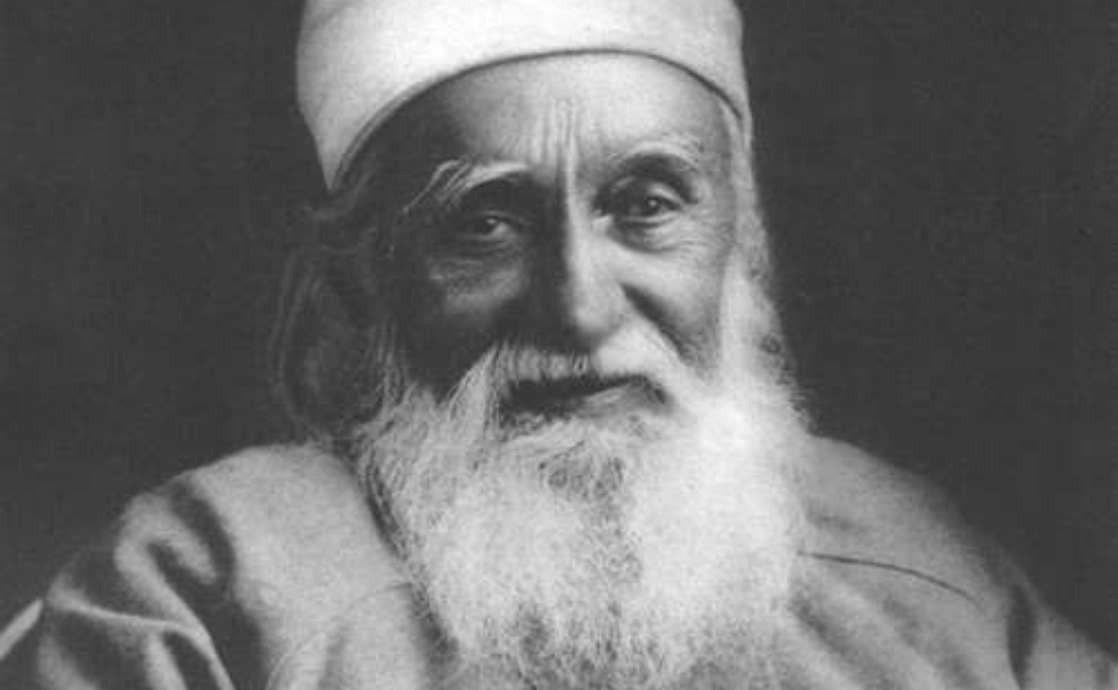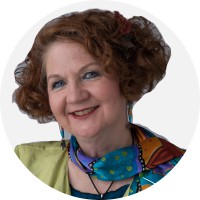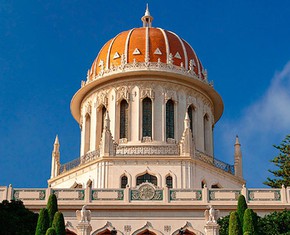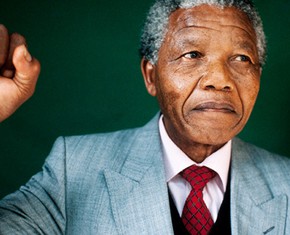The views expressed in our content reflect individual perspectives and do not represent the authoritative views of the Baha'i Faith.
Can you imagine a human being who could fulfill the role of “the perfect embodiment of universal love?” That’s exactly how many, many people – and not just his followers – reacted to Abdu’l-Baha.
The exemplary life of Abdu’l-Baha provides the ideal role model for every Baha’i. Shoghi Effendi, the Guardian of the Baha’i Faith, summarized that life in a 1947 statement to the nascent United Nations:
The authorized Interpreter and Exemplar of Baha’u’llah’s teachings was His eldest son Abdu’l-Baha (Servant of Baha) who was appointed by his Father as the Center to whom all Baha’is should turn for instruction and guidance. Abdu’l-Baha ever since his childhood was the closest companion of his Father, and shared all His sorrows and sufferings. He remained a prisoner until 1908, when the old regime in Turkey was overthrown and all religious and political prisoners throughout the empire were liberated. After that he continued to make his home in Palestine but undertook extensive teaching tours in Egypt, Europe and America, being ceaselessly engaged in explaining and exemplifying the principles of his Father’s Faith and in inspiring and directing the activities of his friends and followers throughout the world.
RELATED: Abdu’l-Baha: He Lived To Serve Humanity
But for the ones who met and interacted with Abdu’l-Baha – even those who were not Baha’is – his love, kindness, and altruism also inspired, thrilled, and exhilarated their souls.
Known as “The Mother,” Mirra Alfassa was a French Hindu leader who met Abdu’l-Baha on many occasions. She later became head of the ashram of the Indian mystic Sri Aurobindo after his death. She wrote:
His sincerity and his aspiration for the Divine were simple and very spontaneous. One day, when I went to visit him, he was to give a lecture to his disciples. But he was sick and could not get up. Perhaps the meeting would have to be postponed. When I came near to him, he said, “Go and take my place at today’s lecture.” I was startled, unprepared as I was to hear such a request. I said to him, “I am not a member of your sect and I know nothing about it, so how can I talk to them about anything?” But he insisted, saying, “It does not matter. Say anything at all, it will be quite all right. Go and talk … Concentrate in the sitting-room and then speak.” At last he persuaded me to do it …
Last Monday, Abdul Baha took leave of us; in a very few days he will have left Paris, and I know many hearts which will feel a great void and will grieve. Yet only the body is leaving us … his thought will remain faithfully with us, and his unchanging affection will enfold us, and his spiritual influence will always be the same, absolutely the same. Whether materially he is near or far matters little, for the divine forces elude completely the laws of the material world: they are omnipresent, always at work to satisfy every receptivity, every sincere aspiration ….
Charles Blech, a French Theosophist, was president and secretary-general of the Societé Théosophique de France when Abdu’l-Baha spoke at meetings of the Theosophists. He wrote:
Abdul Baha in my estimation is the perfect embodiment of universal love. He is the real and ideal prophet of brotherhood and peace. He is a perfect divine example for all of us to follow … and we all love and revere Him because He is at one and the same moment so divine and so human … Listen to his words of wisdom and knowledge. Forget for an hour your own thoughts and ideas and let your minds be filled with his ideas of divine spirit.
Maude Holbach was an English travel writer who met Abdu’l-Baha in several places. She wrote:
At Vienna the Baroness von Suttner, the winner of the Nobel Peace Prize … called upon [Abdu’l-Baha] and conferred with him upon the subject of International Peace, to promote which was their common aim. In Budapest, where Abdul Baha met with an ovation from both scholars and social reformers, the head of the Peace Society, a high dignitary of the Church of Rome, showed his liberality by extending a warm welcome to the Oriental guest, and appearing with him on the platform at a public meeting at which a renowned Jewish professor stood on his other side, thus typifying the union of religions for which Abdul Baha pleads.
In Hungary, Arminius Vambery, a renowned Professor of Oriental Languages at the University of Budapest, made this statement about Abdu’l-Baha: “Although I have travelled through many countries and cities of Islam, yet I have never met so lofty a character and so exalted a personage.”
And Robert Nadler, a Hungarian painter and president of the Apollo Theosophical Society in Budapest who painted Abdu’l-Baha’s portrait, wrote:
I saw with admiration that in his facial expression peace, clean love, and perfect good intentions reflected themselves. He saw everything in such a beatific light; he found everything beautiful the outer life of the city, as well as the souls of its inhabitants. He praised the layout of our city, the traversing magnificent Danube, its good water and its good people.
The Pesti Naplo newspaper reported:
A great man has arrived in Budapest. He is neither an emperor, nor a prince, nor some famous writer. He is an “apostle,” the prophet of the unification of humankind, Abdul Baha, the teacher of Bahaism. For us, with minds saturated by materialism, it may look strange or even ridiculous that there is a man today who is wandering from town to town to seek salvation for his suffering fellow human beings by preaching love and human community. And still the facts provide a wonderful justification for the prophet. In America, England and on the continent, in countries where industrial production has reached the highest levels, there are millions who believe in this new manifestation and who find improvement in it.
Another Budapest newspaper reported:
Abdul Beha [sic] is the child of the modern age and this is manifest in his teachings among other things. While voicing the sacred words of God, he often refers to modern ideals as well. In addition to eternal love and happiness, he wholeheartedly is a propagandist of the cause of world peace and, with more enthusiasm than even the suffragettes, he demands the right for women to vote and equality between men and women. The novel and unselfish work of this Persian sage is worthy of respect and deserves the great sympathy by which he has been welcomed on his world tour ….
Juliet Thompson, a New York portrait painter and a Baha’i, summarized some of the responses of others:
As He walked among the people, an Immortal in a less than human world, with His ineffable beauty, His scintillating power, His strange, unearthly majesty, eyes full of wonder followed Him.
The poet, Kahlil Gibran, said: “For the first time I saw form noble enough to be the receptacle for Holy Spirit!”
An atheist went to a church to hear Him speak and later eagerly sought Him at His house. When this atheist was asked: “Did you feel the greatness of Abdu’l-Baha?” he indignantly replied: “Would you feel the greatness of Niagara?”
Those who met Him perceived no more than their capacity could register. A society woman exclaimed: “Such beauty – the beauty of strength! And such charm! Why, He is a perfect man of the world!” And another society woman who had talked at length with Him: “You can hide nothing from Him! He looked into my heart and discovered all its secrets.”
A woman in sorrow, passing through a cruel experience, said: “He took all the bitterness out of my heart.” A famous playwright, when he came from the room of Abdu’l-Baha, declared: “I have been in the presence of God!” Lee McClung, then Treasurer of the United States, after his meeting with the Master, groping for words to describe it, said: “I felt as if I were in the presence of a great Prophet – Isaiah – Elijah – no, that is not it. The presence of Christ – no. I felt as if I were in the presence of my Divine Father.”
The Turkish ambassador, Zia Pasha, a devout Muhammadan … toasted Him as “The Light of the age, Who has come to spread His glory and perfection among us.”
RELATED: Abdu’l-Baha’s Relationship to His Father, Baha’u’llah
These are only a few accounts of those who met Abdu’l-Baha, many of whom experienced a life-changing transformation as a result. In their individual responses, they probably had no idea how the collective impact of these accounts would influence us now – just as we have no idea how our own efforts to understand and follow the example of Abdu’l-Baha might affect generations to come.
One thing is clear: Abdu’l-Baha’s uniqueness serves as a paradigm of human attainment, vision, and action – the perfect embodiment of universal love. The more we learn about him, the greater our motivation to follow his example and help change the world can become.
















Comments
Sign in or create an account
Continue with Googleor